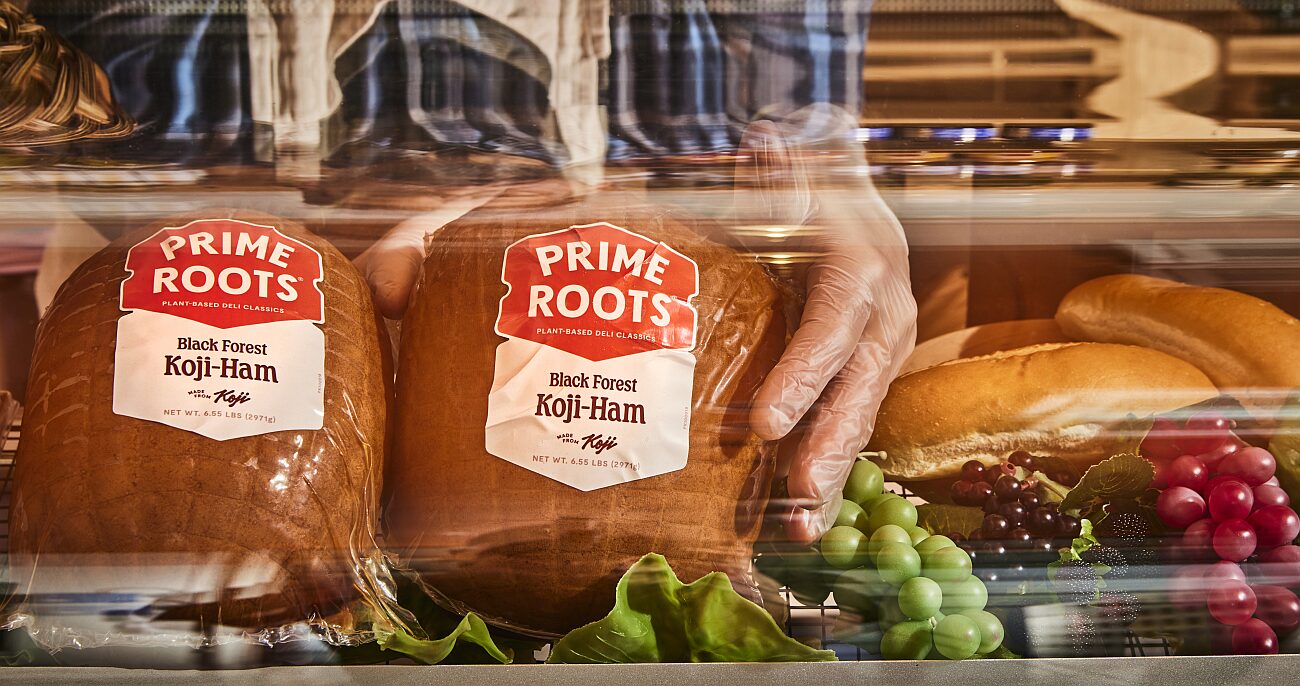Prime Roots: Pioneering the Next Wave of Plant-Based Deli Meats
While alt-meat sales in the US retail landscape may not be soaring, Prime Roots is finding success by innovating in the deli department. Kimberlie Le, CEO and co-founder, asserts that their koji-based turkey, ham, and salami are carving out a valuable niche, with plans for national expansion in the coming year.
Addressing Consumer Perceptions
Deli meats have a different perception compared to the likes of chicken, beef, or fish. Many consumers view deli meats as more processed and less healthy, making them more open to considering plant-based alternatives. Le, who co-founded Prime Roots alongside Joshua Nixon in 2017, highlights, “We’ve leaned into being a clean, whole food source of protein. There are health risks associated with processed meats that we feed to our kids daily.”
“When people think of chicken breasts, they visualize health and simplicity,” she continues, “but the bar for deli meats is lower.” Prime Roots aims to revolutionize the deli counter by offering slice-able products at supermarkets and food service locations, rather than pre-packaged goods that often go unnoticed on store shelves.
Strategic Positioning for Growth
By concentrating on the deli market, Prime Roots has positioned itself in a premium pricing sector, which Le believes is a competitive edge. “We made a strategic decision not to enter the burgers and nuggets category but to focus on deli counters,” she explains. “This market generally lacks plant-based options, allowing us to create a new category.” Unlike other players in the alt meat space, Prime Roots has adopted a measured approach rather than racing to scale aggressively.
“We’re hoping not to need additional funding in the future because we are now unit profitable,” Le adds, showcasing the company’s sustainable operational business model.
Innovation through Mycelium
Similar to other companies like Meati and The Better Meat Co, Prime Roots cultivates its mycelium in steel fermentation tanks. Le discusses the company’s participation in the Alt:Meat Lab at UC Berkeley, focusing on sustainable protein sources that meet consumer demand for healthier, less processed options. “Our core ingredient, Aspergillus Oryzae (koji), is a less processed alternative compared to plant-based products” she states.
Consumer Engagement and Brand Communication
Labelling and communications regarding koji remain a work in progress. Many consumers may not be familiar with the term, causing brands like Quorn to face lawsuits when using similar terminology. Le notes that phrases such as “cracked pepper ham-inspired” resonate better with consumers than the term koji.
“We avoid saying ‘mushroom roots’ on our labels, but we describe it as the mycelial network that supports mushrooms, helping consumers visualize the concept. Our brand name, Prime Roots, effectively encapsulates this idea,” she says.
Future Prospects and Production Capacity
Looking ahead, Le acknowledges the challenges of production capacity during early stages. “We’ve experienced periods of not having enough product, which is part of the journey. However, we’ve established a solid operations function that can scale,” she explains.
The goal is to expand nationally by 2026. “Successfully getting a retailer to take your product is one thing; effectively delivering it to them is another. We’re currently strategizing on this dual challenge as both retail and foodservice markets require us to do double the work,” she concludes.

Further Exploration
For those interested in the evolving landscape of plant-based options, consider reading:
- Better Meat Co raises $31m Series A: ‘Some days, building a startup in our sector can feel like being a player in Squid Game’
- Infomercial exec Yasir Abdul emerges as a prospective buyer for Meati as firm navigates ABC process
- Breaking: Ecovative raises $11m, plans aggressive expansion of mycelium-based MyBacon



